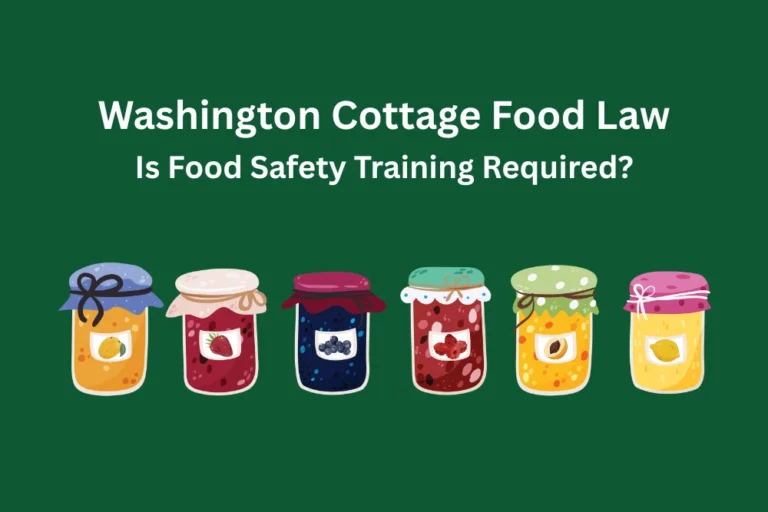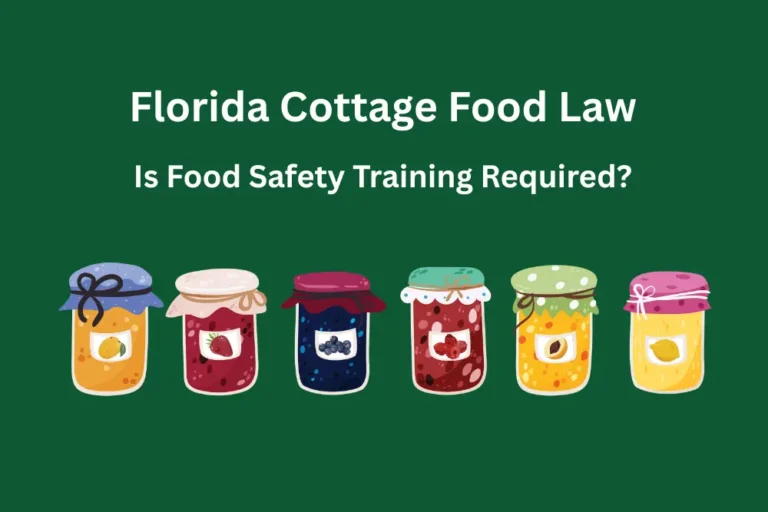North Carolina Cottage Food Law: Do You Need Food Safety Training?
Article Summary
Selling homemade food in North Carolina? The cottage food law doesn’t require food handler training, but getting your card can still give your business an edge. This quick video explains why it’s worth it, what you’re allowed to sell, and how to get your food handler card online with FoodSafePal.
Selling food you make at home can be a great way to start or grow a small business, but there are rules you’ll need to follow.
Each state has its own cottage food law that outlines what you can make, how and where you can sell it, and whether food safety training is required.
This article breaks down North Carolina’s cottage food law — officially called the Home Processing Program — and explains whether you need food safety training to sell homemade food.
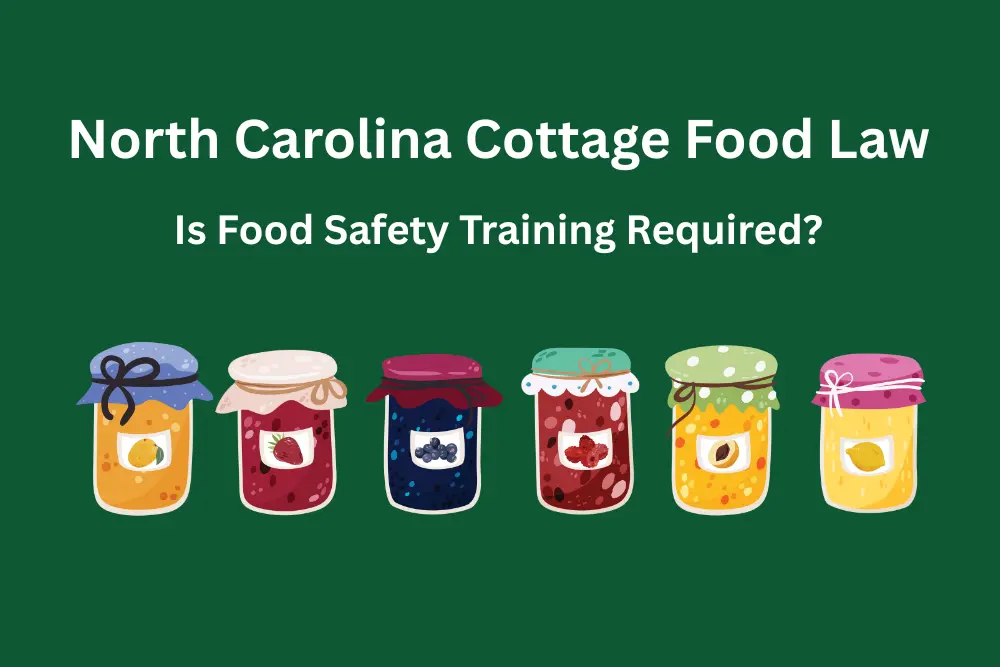
North Carolina cottage food production
North Carolina’s home processing law allows you to make and sell homemade foods that don’t require refrigeration or freezing to stay safe — also known as low-risk or non-potentially hazardous foods.
These foods must be made, packaged, and labeled in your inspected home kitchen and can be sold directly to consumers or through retail stores, including grocery stores and coffee shops, as long as you’re registered and approved under the law.
Here are examples of approved foods:
- Baked goods that don’t require refrigeration, like cookies, cakes, breads, muffins, and brownies
- Jams, jellies, and fruit preserves made using tested recipes
- Candy, chocolates, and caramel treats
- Dried mixes, spices, and herbs
- Teas, lemonade, and coffee (roasted beans or brewed and bottled shelf-stable)
- Granola, popcorn, and snack mixes
- Acidified foods like pickles, BBQ sauce, or salad dressings (if tested and proven shelf-stable)
- Freeze-dried fruits or vegetables
Some of these products — like pickles, sauces, and freeze-dried foods — must be tested for pH or water activity to confirm they’re shelf-stable before you can sell them. You’ll need to submit those test results when you apply.
High-risk foods are not allowed under the home processing program. These are foods that require refrigeration, freezing, or hot holding to remain safe and can support the growth of harmful bacteria.
Here are examples of prohibited foods under North Carolina’s home processing program:
- Meat, poultry, and seafood products
- Dairy products
- Baked goods with cream or cream cheese fillings
- Cheesecakes, custards, and cream pies
- Sauerkraut, kimchi, and other fermented foods
- Low-acid canned vegetables like green beans or carrots
- Fresh salsas, relishes, or other refrigerated sauces
- Juices, smoothies, and other perishable beverages
If your product falls into one of these categories, you must produce it in a commercial kitchen inspected under North Carolina’s routine food establishment inspection program rather than the home processing program.
Summary
North Carolina allows you to sell only low-risk, shelf-stable foods from your home kitchen, but your kitchen must first be inspected and approved. High-risk foods are not allowed in home kitchens and must be made in a commercial facility.
Do you need food safety training to sell homemade food in North Carolina?
North Carolina’s home processing program does not require a North Carolina food handler card to operate a home-based food business. But even if it’s not required, having a food handlers card can set you apart in meaningful ways.
Why? Because trust sells.
When someone buys from you, they want to feel confident that the food they’re bringing home was made and handled safely. They want to enjoy it with their family without worrying about foodborne illness. A food handlers card shows that you take their health — and your business — seriously.
Beyond customer trust, having a food handlers card can help you gain access to more sales opportunities. For example, some farmers markets, festivals, and retail buyers, including grocery stores and coffee shops, may require proof of food handler training to protect both their business and their customers.
Additionally, some liability insurance providers may require food safety training before issuing a policy, while others may offer discounts to certified vendors. Thus, holding a valid food handlers card may make it easier to get coverage and even save you money.
Of course, not all food handler training is created equal.
FoodSafePal’s ANSI-National Accreditation Board (ANAB)-accredited food handler training meets national food safety standards and takes about 90 minutes to complete. It’s a quick and easy way to learn the basics and get your food handler card.
Once you pass the course, you’ll get immediate access to your food handler card and certificate. You can also upgrade to receive a printed version to display at markets or include with your business records.
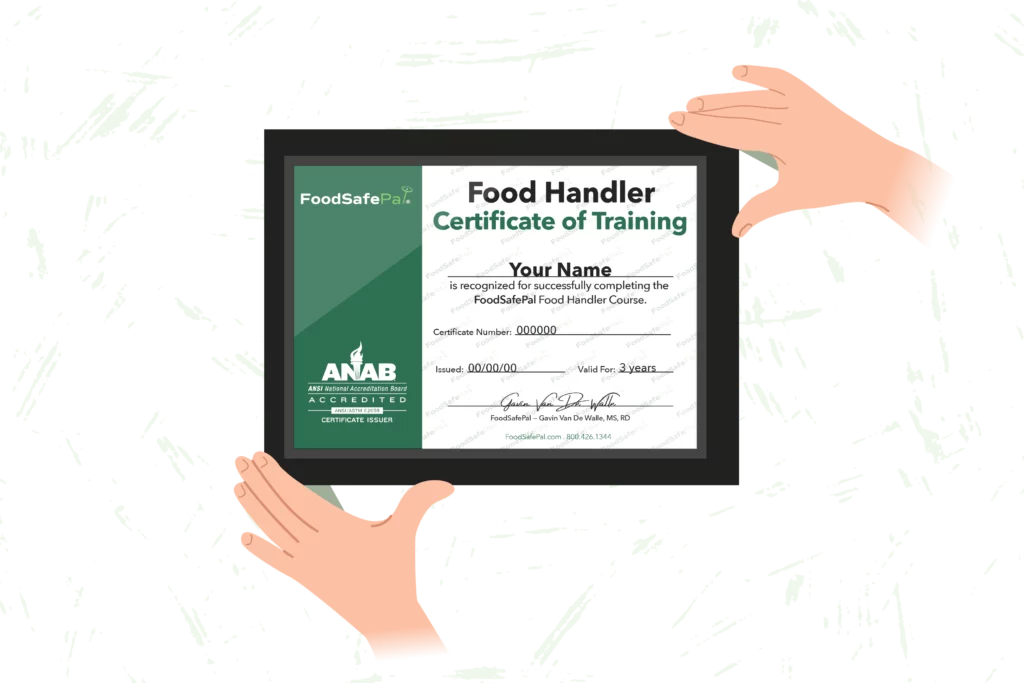
Get Your North Carolina Food Handlers Card
Instant certificate. 100% online in about 90 minutes.
Summary
Food safety training isn’t legally required in North Carolina, but earning a food handler card can build trust, unlock more selling opportunities, and make it easier to get insured.
Labeling requirements
Under North Carolina’s home processing program, every product you sell must be labeled with certain information.
Your label must include:
- Your name and home address
- The name of the product
- The net weight in ounces/pounds and grams
- The ingredients in descending order by weight
- An allergen statement identifying any major allergens your product contains, such as milk, eggs, wheat, peanuts, or tree nuts
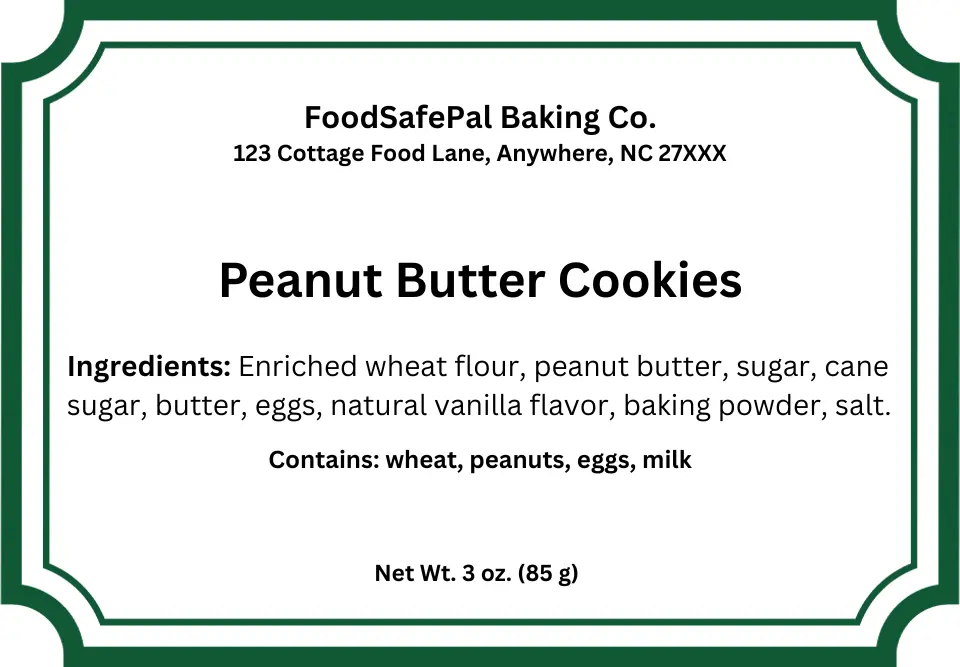
Nutrition facts panels are not required unless you make a health or nutrient content claim.
If your product is sold unpackaged — like handing it directly to a customer at a farmers market — you must still make the ingredient information available on request.
Summary
All packaged foods must include a label with your name and address, product name, weight, ingredients, and allergen information.
The bottom line
Under North Carolina’s home processing program, you can make and sell non-refrigerated homemade foods like baked goods, jams, and candies, either directly to customers or through retail stores, as long as your kitchen is inspected and approved.
Food safety training isn’t required, but getting an ANAB-accredited food handlers card from FoodSafePal builds customer trust, expands your selling opportunities, and shows your commitment to making safe, high-quality food.
Every product you sell must be properly labeled with your name and address, product name, weight, ingredients, and allergen information.

Get Your North Carolina Food Handlers Card
Instant certificate. 100% online in about 90 minutes.



